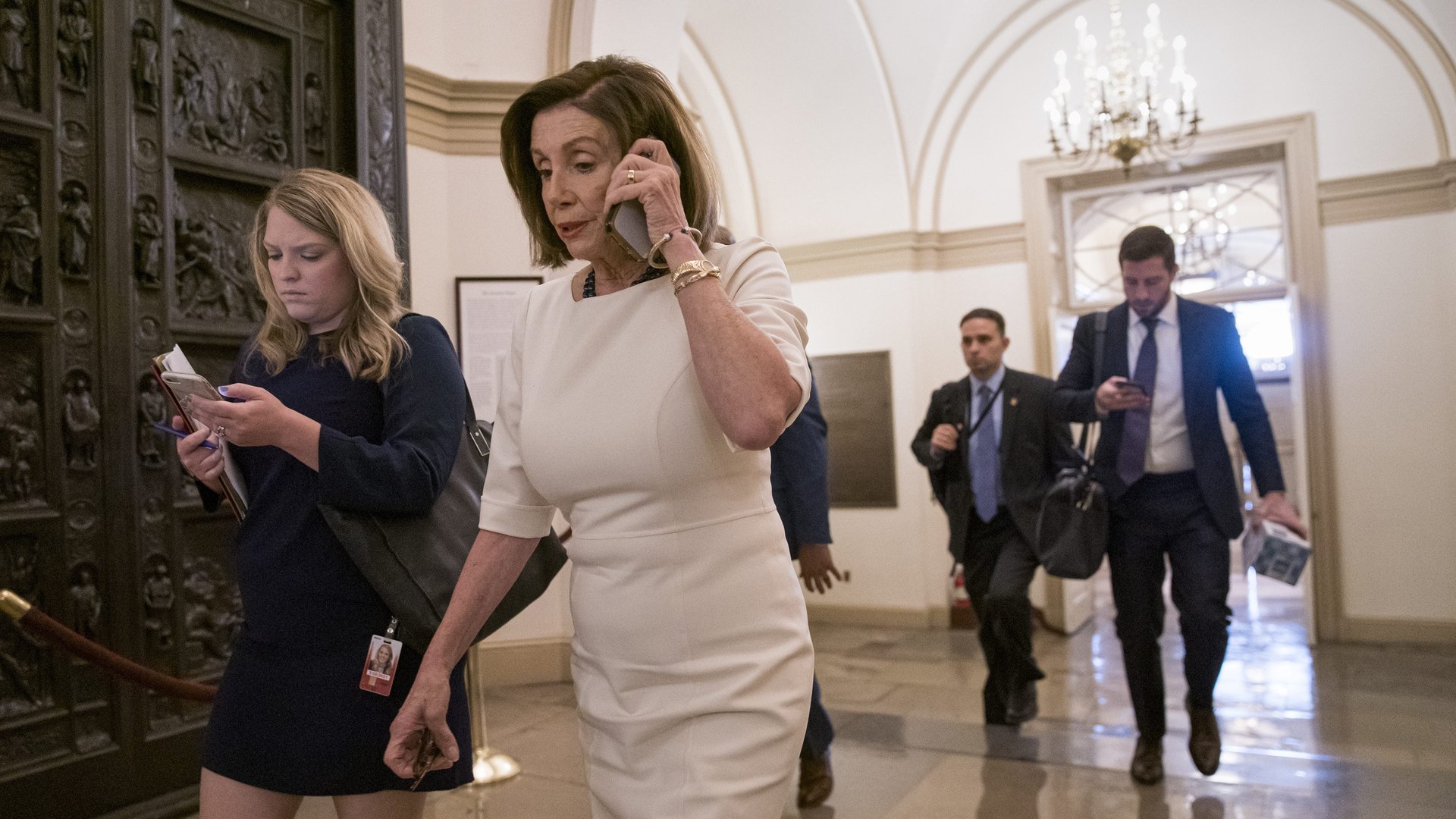The internet isn’t that taken by the Trump impeachment inquiry—nor that polarized about it
US House speaker Nancy Pelosi announced on Sept. 24 a formal impeachment inquiry into Donald Trump, after the president allegedly pressured his Ukrainian counterpart to find information that could damage Democratic presidential candidate Joe Biden.


US House speaker Nancy Pelosi announced on Sept. 24 a formal impeachment inquiry into Donald Trump, after the president allegedly pressured his Ukrainian counterpart to find information that could damage Democratic presidential candidate Joe Biden.
The action followed many months of speculation on whether the House would move forward with an official impeachment, something that had been discussed since Robert Mueller conducted his investigation of Russian meddling in the US election and the president’s possible obstruction of justice in its development.
Unsurprisingly, the impeachment investigation is the news of the moment, but do people actually care? Online marketing platform SEMrush looked at Google searches and trends, as well as Twitter, and found out that they do, albeit apparently not yet as much as they did two years ago.
Searches for “Trump impeachment” actually peaked in May 2017—when Mueller was named special counsel on the investigation. The search’s second-highest volume occurred in February 2017, followed by November 2017. The volume today isn’t as high, though Google Trends projects it will go up.
Further, while the number of people searching “impeachment” went up as Pelosi announced the inquiry, it went down shortly thereafter. Another search that peaked long before the official inquiry was launched is “how does impeachment work,” which reached its highest numbers on the eve of the 2016 election.
Still, nearly five times more people searched for “Trump impeachment” on Sept. 25 than they did on Sept. 23. SEMrush says the search volumes for the term went up 469%.
It seems, however, that people are turning to the internet to follow the developments, rather than debate about it. The company analyzed over 60,000 tweets shared about a Trump impeachment on Sept. 23 (7,500 tweets), Sept. 24 (7,900 tweets), and Sept. 25 (when the volume of tweets went up to 45,000). An analysis of the sentiments found that the polarized, negative tweets about Trump were fewer than the positive ones—respectively, 6% of the tweets criticized the president, while 9.4% supported him. But the vast majority of the tweets (84.5%) were neutral in content.